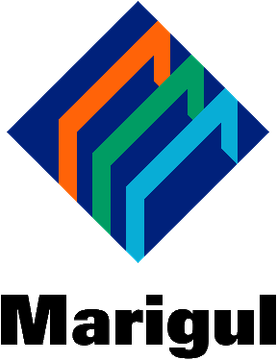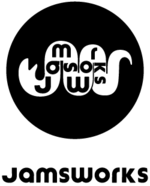| Site Notice |
|---|
|
We have a limited coverage policy. Please check our coverage page to see which articles are allowed. |
Marigul Management
| This article is incomplete. You can help by filling in the missing information. |
Marigul Management was a former second-party video game company partially owned by Nintendo and the Japanese company Recruit. It was founded in 1996 to promote smaller video game developers to come up with original game concepts, in particular for the Nintendo 64. Although many Marigul works are Nintendo IP, a few such as En En Angel by Frognation are not.
More than five studios went forward to became part of Marigul Management including Ambrella, Clever Trick, Jamsworks (late in April 2003), Noise, Param, ParityBit and Saru Brunei. Although the company liquidated in May 2003, Ambrella, Jamsworks, Noise and ParityBit continued to make games. Ambrella, the developers of Hey You, Pikachu! became well known for developing several Pokémon spin-offs such as Pokémon Channel and Pokémon Rumble, whereas Noise became popular for the Custom Robo series. Both ParityBit and Jamsworks are known for the Nintendo Pocket Football Club series, and Jamsworks for the Nintendo Culdcept games, as well as DS Uranai Seikatsu.
Additionally Spiral (Co., Ltd.) worked with Marigul Management and Sarugakuchou (latter: debugging support) to create Monster Tactics for Game Boy Color.
Marigul is also known for their work on various non-Nintendo franchises, for example, Game Studio worked with Marigul Management to create the game DT: Lord of Genomes also for Game Boy Color (but originally for Nintendo 64DD with Game Boy Color support with the unreleased 64GB Cable) (early on, Nintendo's interest in it is unclear). Another example of a Game Studio series is Loppi Puzzle Magazine, released through writing it on to a Game Boy Memory Cartridge (Loppi ticketing system). It included various puzzles, including nonogram style puzzles (similar to Jupiter's Picross concept).
Another example is Zok Zok Heroes; a Japanese superhero and Kaiju-inspired Game Boy Color game which made use of a unique peripheral known as the "Full Changer"; a physical device in which the player would move it around in a certain way to transform into the superhero in-game that they desire (it is also notable amongst emulation enthusiasts as being difficult to emulate without a cheating device or ROM patch/a similar case to Pocket Sonar, Mario Family, Kirby Family and various other unique Game Boy games). Marigul Management according to the end staff credits helped developed this, as did they help in creating the Game Boy Memory Cartridge and SF Memory Cassette (for the Japanese Nintendo Power (cartridge service)).
Contents
Games
Not published by Nintendo
- DT: Lords of Genomes (developed by Game Studio and published by Media Factory). This company is also associated with many other games, such as Columns for Super Nintendo Entertainment System and Loppi Puzzle Magazine for Game Boy.
- Teo: A development team within Marigul Management was developing a game called Teo for the Nintendo 64DD, collaborating with Hudson Soft and Fujitsu. Fujitsu were considering publishing the game for its official release. It was meant to be a game similar to Hey You, Pikachu! where the player would speak with a flying dolphin called "Fin Fin" using a microphone. The game was based on the PC game Fin Fin on Teo the Magic Planet developed by Fujitsu, but unlike its predecessor, it was eventually canceled.
- Tamagotchi Town (Bandai): 1999 Marigul copyright notice on title screen. Unknown role.
- Oekaki Logic: 1999 Marigul and Sekaibunka-Sha, SUMIRE KOBO copyright notices on title screen. Unknown role.
- En En Angel: Attributed to Marigul company Frognation.[1]
- Zok Zok Heroes: Full Changer, Creatures, Inc. and Nintendo representative, primarily chip music including some classic arcade, Game Boy, Nintendo Entertainment System and promotional game-anime music artist (such as Pokémon series)'s Hirokazu Tanaka is also curiously in the special thanks list. This game was produced in collaboration with +ハVan Planning, KAZe and Media Factory.
- Non-Calciobit ParityBit games (Derby Stallion series)
Game Studio
Game Studio was formally a Marigul Management company, but none of their games were published by Nintendo. Game Studio was founded by Masanobu Endo (famous as the creator of Namco titles such as Xevious and Tower of Druaga).
Game Studio are believed to have contributed to the following games:[2]
- Airs Adventure
- Columns (SNES)
- Columns GB: Tezuka Osamu Characters
- DT: Lords of Genomes
- Family Circuit
- Family Circuit '91
- Itadaki Street: Watashi no Omise ni Yottette
- Loppi Puzzle Magazine series
- Mobile Suit Z-Gundam: Hot Scramble
- Wizardry II: Knight of Diamonds (NES)
- Wizardry V: Heart of the Maelstrom (SNES)
Ambrella
- Hey You, Pikachu! - Nintendo 64 (1998)
- Pokémon Channel - Nintendo GameCube (2003)
- Pokémon Dash - Nintendo DS (2004)
- My Pokémon Ranch - WiiWare (2008)
- Pokémon Rumble series
Clever Trick
- Echo Delta - Nintendo 64 (canceled)
Jamsworks
| Main article: Jamsworks |
(Source)
- Meteos - Nintendo DS (2005)
- Calciobit - Game Boy Advance (2006)
- DS Uranai Seikatsu - Nintendo DS (2009)
- Culdcept (Nintendo 3DS) (2012)
- Nintendo Pocket Football Club - Nintendo 3DS (2012)
- Culdcept Revolt (2016)
- Nintendo DS Public Space Initiative works
Noise
- Custom Robo - Nintendo 64 (1999)
- Custom Robo V2 - Nintendo 64 (2000)
- Custom Robo GX - Game Boy Advance (2002)
- Custom Robo - Nintendo GameCube (2004)
- Custom Robo Arena - Nintendo DS (2006)
ParityBit
- Derby Stallion 98 - Super Famicom (NP 1998)
- Calciobit - Game Boy Advance (2006)
- Nintendo Pocket Football Club - Nintendo 3DS (2012)
Param
- Doshin the Giant - Nintendo 64DD (1999)
- Kyojin no Doshin Kaihou Sensen Chibikkochikko Dai Shuugou - Nintendo 64DD (2000)
A GameCube version of Doshin the Giant was later released in 2002, although assisted by Intelligent Systems. It was only localized in Europe.
Saru Brunei
- Shin Game Design- Satoshi Tajiri (founder of Game Freak) publication: Saru Brunei worked on the book binding process, which involved the work of Gento Matsumoto and Megumi Kasai
- Animal Leader - Nintendo 64DD (canceled)
Animal Leader eventually evolved to become Cubivore: Survival of the Fittest for the GameCube in 2002, again assisted by Intelligent Systems. It was only localized in North America.
Spiral
- Monster Tactics (possibly as Spiral Co., Ltd) - see staff credits [3]
Unknown Nintendo teams
Other, unknown
- VRS Racer: Would have used the Nintendo 64 microphone (from the Voice Recognition Unit). [4]
Notes
- Media Factory was once owned by Recruit.[5]
Peripherals
- Nintendo Power (cartridge service)
- 64GB Cable (cancelled)
References




